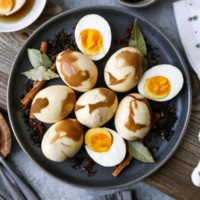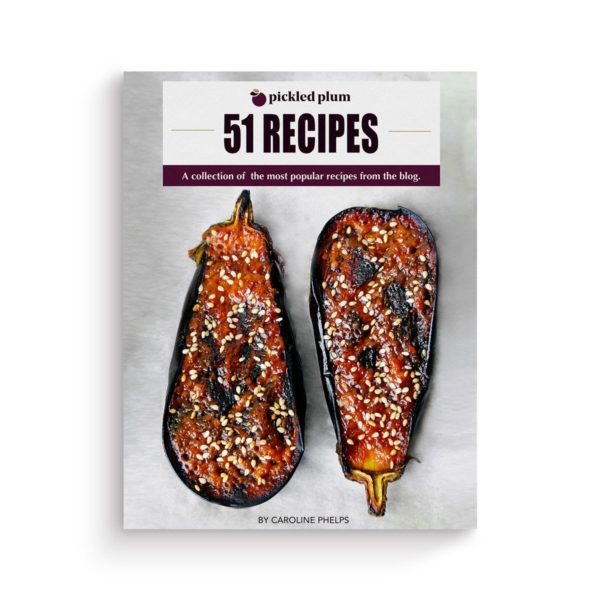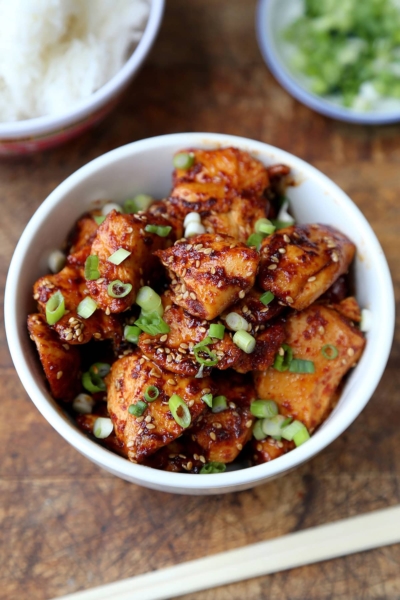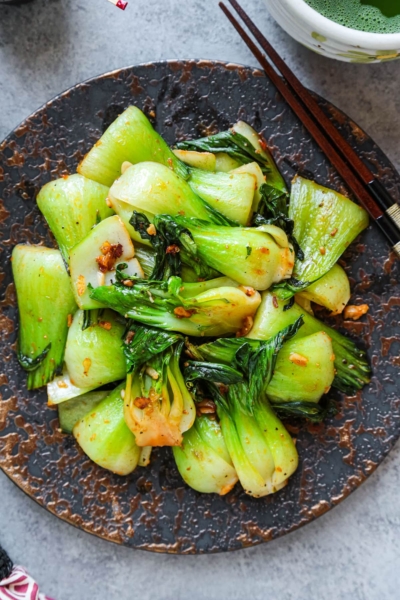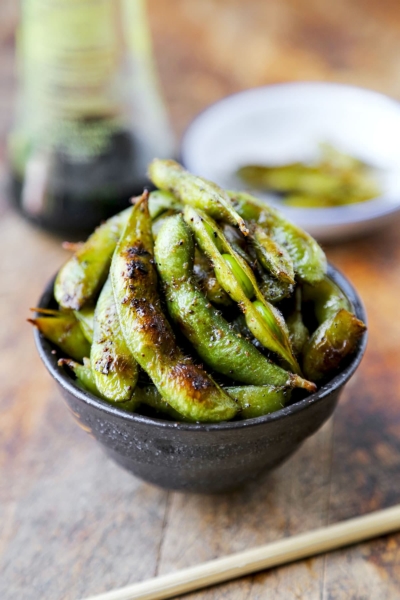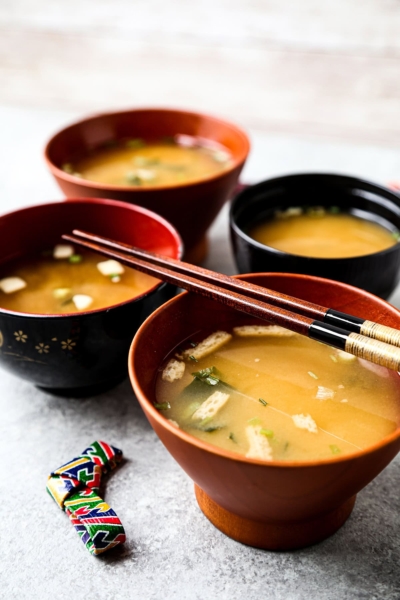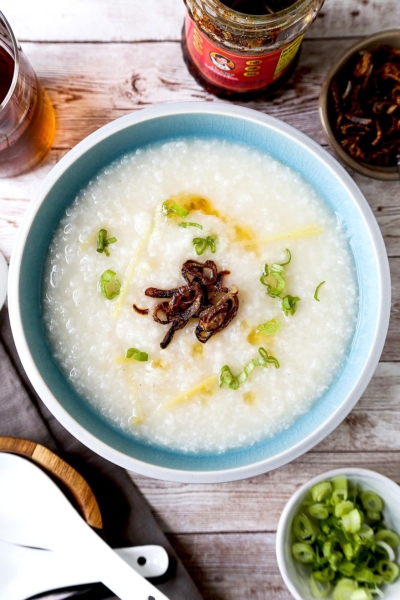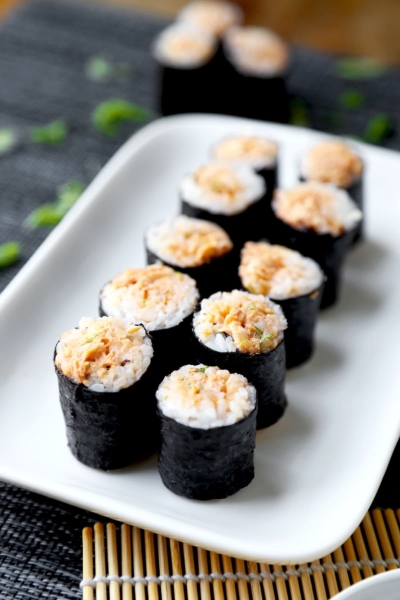With a beautiful mosaic and a soft yolk, these Chinese Tea Eggs are packed with savory, spiced flavor and have the most intriguing marbled surface!
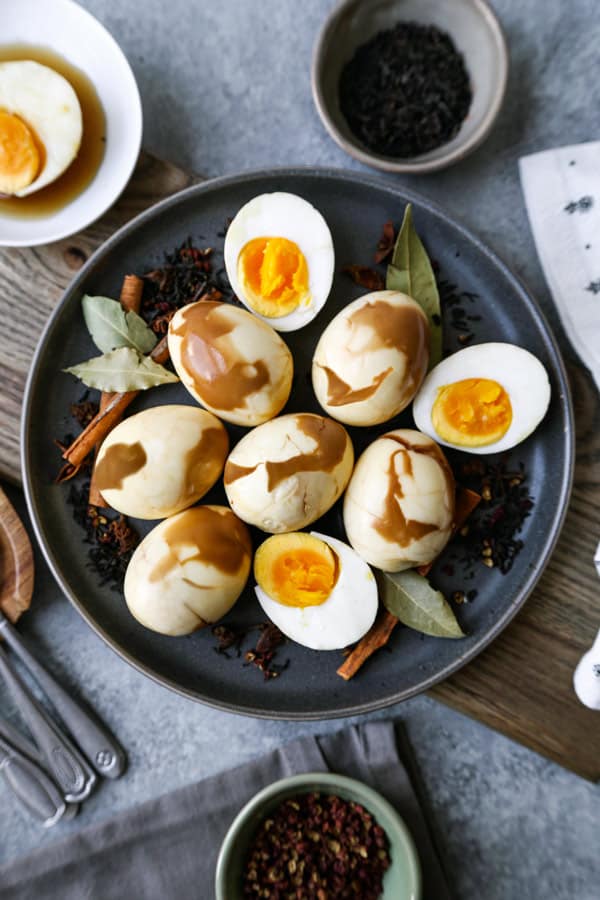
What are Chinese tea eggs?
Tea eggs (茶叶蛋) are boiled eggs that have their shells cracked – and are then inserted into a savory, sweet and spicy marinade made of black tea leaves, soy sauce and a handful of exotic spices.
Cracking the shells allows the marinade to seep into those cracks, flavoring the egg and creating an intricate mosaic pattern on the cooked egg white.
Now, the traditional method of making Chinese tea eggs calls for them to be cooked twice. Once to hard boil and set the egg white and yolk – along with another long heated simmer in the flavored marinade. While this twice-cooked method results in a more striking colored mosaic on the egg white, it also results in eggs that are so overcooked that the yolk turns into a tough, chalky mess.
My method is to boil the eggs – and then shock them in cold water to stop the cooking process. The shells are cracked with a spoon and then they are inserted into a cool marinade and allowed to sit in the fridge for at least 24 hours.
This method produces tea eggs that have a medium to firm cooked yolk (almost like a thick, set custard), and a stained egg white loaded with all the flavors!
What do tea eggs taste like?
At your first silky, custardy bite, you’ll likely taste a hit of savory, umami earthiness – which is offset by a subtle sweetness. There are heated notes from ginger and Sichuan peppercorns, along with a light brisk and malty pop from black tea.
Yeah – there’s no shortage of flavors to relish.
And while there are a few general similarities with something like a Japanese ramen egg, I think you’ll find that these Chinese tea eggs have a more well rounded, intriguing and assertive taste.
Best thing about this tea eggs recipe: you dictate the flavor strength. You see, you’re in charge of how long you marinate them. Obviously, the longer you marinate them, the stronger the flavor. But more on those specifics in a sec.
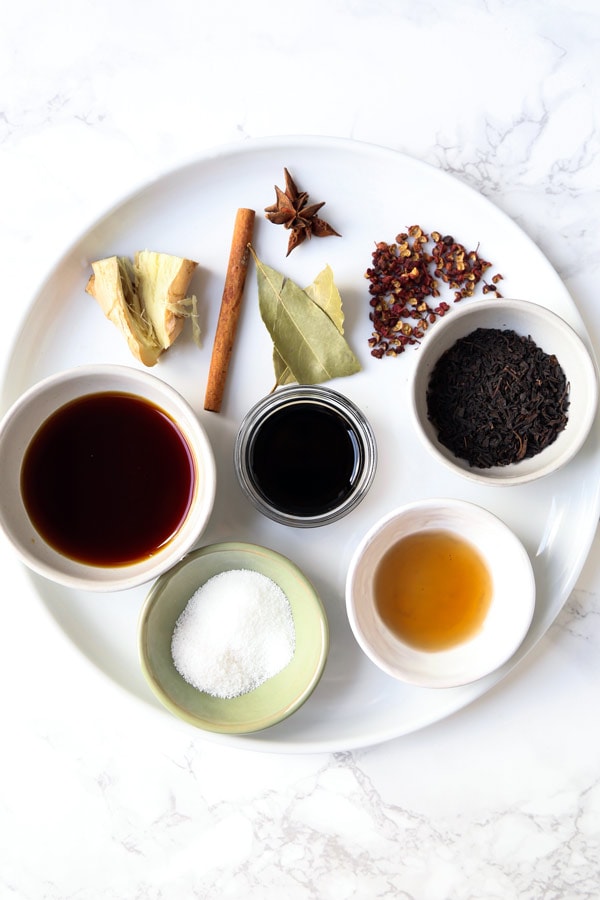
Ingredients for Chinese tea eggs
- Eggs: Yep. This is pretty obvious. I’ve got instructions in the next section for making medium/hard boiled eggs. Or you can dive deeper on how to boil eggs with this post here.
- Light Soy Sauce: This soy sauce is thinner and a little more assertive in the salt department. If you don’t have a soy sauce in your arsenal labeled ‘light’ then just use regular.
- Dark Soy Sauce: I’m referring to the Chinese dark soy sauce here (not the Thai version that goes by the same name). Darker with less sodium and sweeter, almost caramel notes, this thick condiment is essential. Find it at your local Asian grocery store – or pick it up on Amazon.
- Shaoxing Wine: With vinegary, caramel and almost spicy tasting notes – this fermented rice wine is used pretty heavily in Chinese cooking. If you can’t find shaoxing wine, dry sherry is a good substitute.
- Black Tea Leaves: You can use anything from English Breakfast to Darjeeling loose leaf tea… whatever you have handy. Tea bags also work fine for this recipe.
- Fresh Ginger: Smash a small (thumb-sized) knot of peeled ginger with the flat end of a knife for a bit of a slow burn.
- Bay Leaves, Cinnamon Stick, Star Anise and Sichuan Peppercorns: This is close to a traditional Chinese 5 spice mix – but opts for bay leaves instead of the traditional cloves and fennel seeds. So much flavor!
- Sugar and Salt: For delicious tea eggs that are both savory AND sweet, you know what to do!
Now, this may look like an intimidating list of ingredients, but don’t worry. The cooking process is insanely easy to pull off with no trouble in your own home kitchen!
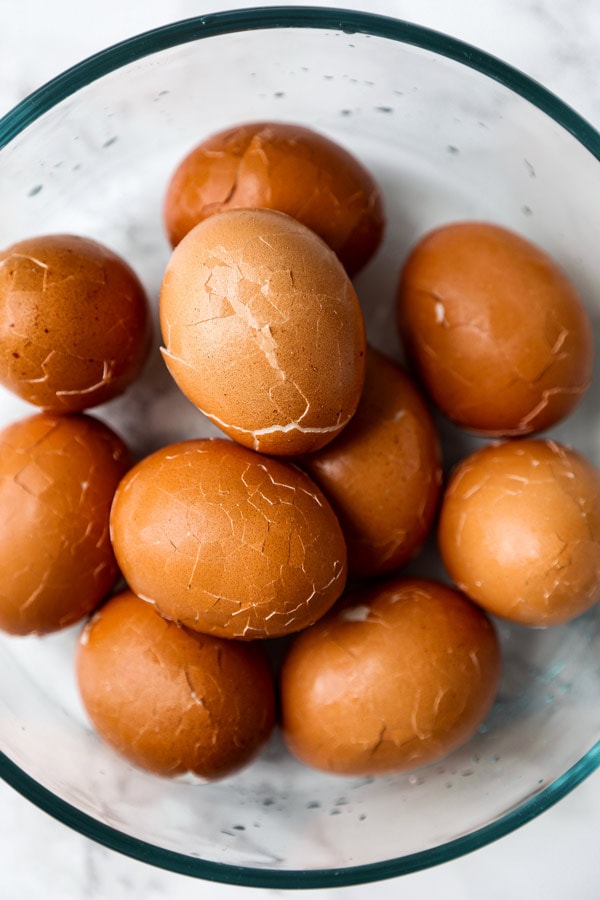
How to make tea eggs
- On your stove top, place all the ingredients for the marinade into a pot and turn the heat to medium. First bring the mixture to boil – then lower the heat to a simmer. Cover and simmer the mixture for 10 minutes. Turn the heat off, remove the lid and let the marinade sit until the liquid cools down to room temperature.
- In the meantime, bring a pot of water to boil and gently add the eggs. Boil for 7 minutes, drain and place the eggs in a bowl with ice cold water. Alternatively, you can use an egg cooker if you have one (use the medium boil marker on your measuring cup). Once the eggs are cooked, place them in a bowl with ice cold water. The eggs are ready for the next step when they are no longer warm to the touch.
- Grab a small spoon and, using the rounded back, gently crack the shell of each egg a few times while making sure not to crack the boiled egg itself inside. This is to allow the marinating liquid to penetrate inside the shells – which incidentally creates the lovely mosaic pattern on the eggs. Long story short: crack a few times – but not so much that the shell actually falls off the egg.
- Gently place the eggs in a jar or other storage container and pour the marinade in.
- Store in the fridge for 24 hours.
- Peel the eggs and serve.
- If you would like your tea eggs to have stronger flavor, return the peeled eggs to the marinating liquid and refrigerate for an additional 3-5 days.
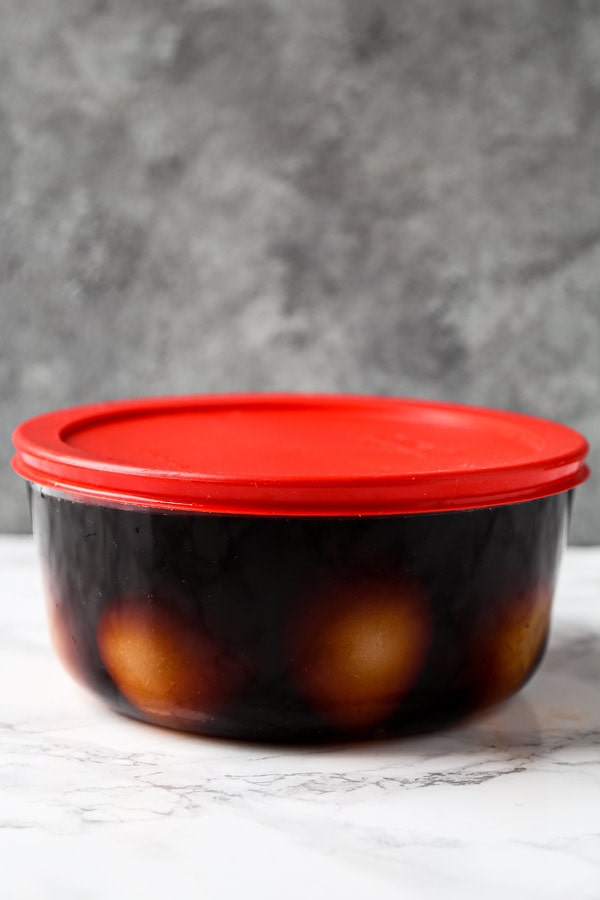
How to store tea eggs
Now, you can store them in a glass jar, a reusable silicone food storage bag or a hard plastic container with a lid. And the best part is that, like I mentioned above, you can store them with the marinade if you like them a bit stronger in the flavor department.
How long do they last in the fridge?
Once cooked, these marbled Chinese tea eggs will keep in the fridge for up to about five days. As always, if they start to smell funny (or if you’re on the fence at all regarding their freshness), it’s best to pitch ‘em.
But since they taste so good, you and your family will probably eat them in no time!
What to serve with tea eggs
First things first: these delicious marbled tea eggs are pretty dang wonderful on their own. You can also really let the infused eggs be the star of the show by eating them with a simple bowl of plain white rice. Learn how to cook perfect Japanese rice on the stovetop and in a rice cooker here.
Or add them as a savory topping for congee… delish!
But if you’re making a full meal out of it, pair these savory marble eggs with these other delicious and easy Chinese recipes:
- Moo Goo Gai Pan
- Chinese Eggplant With Garlic Sauce
- Szechuan Chicken – 辣子鸡
- Easy Hunan Chicken
- Egg Foo Young
Plus:
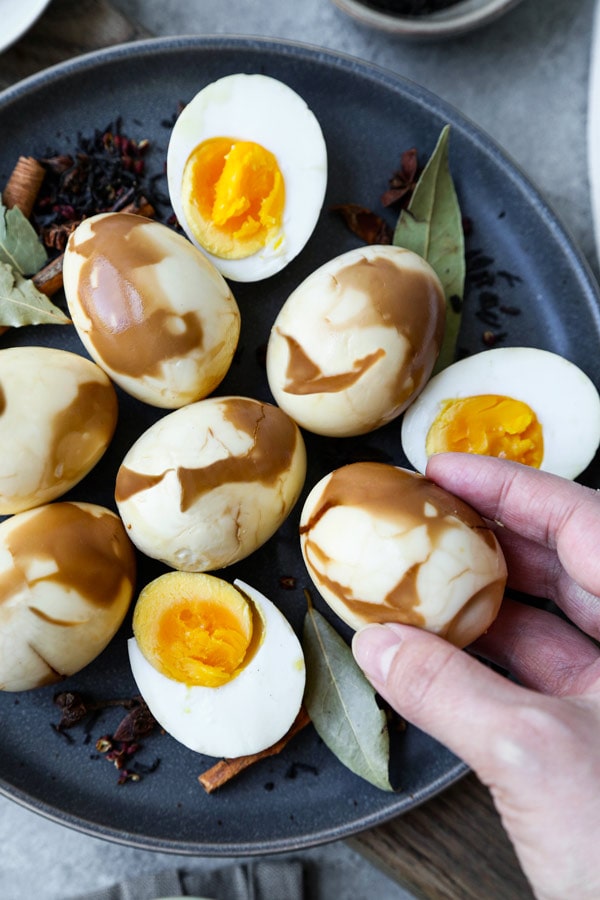
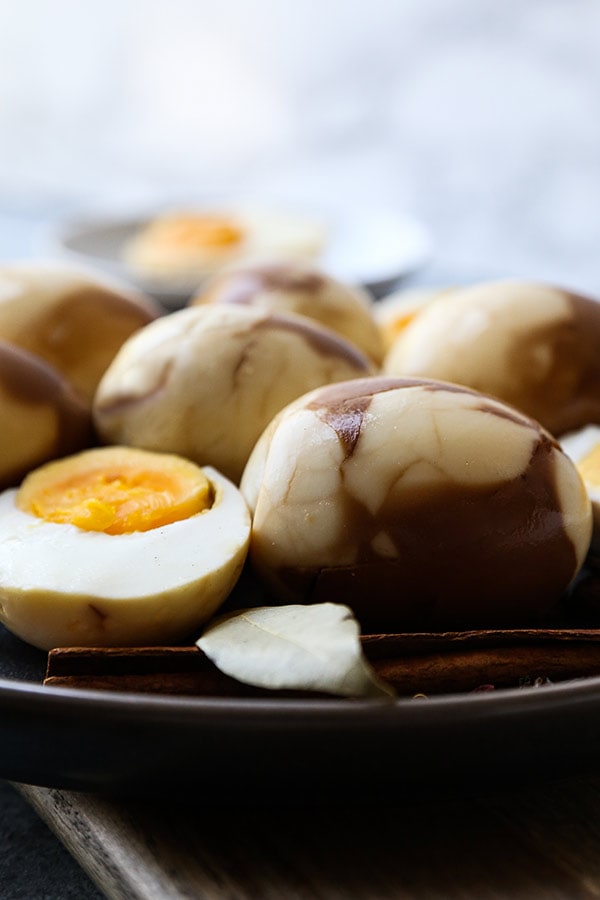
Did you like this Chinese Tea Eggs Recipe? Are there changes you made that you would like to share? Share your tips and recommendations in the comments section below!
PrintChinese Tea Eggs
These easy to make Chinese marbled tea eggs have ALL the flavors!
- Prep Time: 5 minutes
- Cook Time: 20 minutes
- Total Time: 25 minutes
- Yield: 12 Eggs 1x
- Category: Side Dish
- Method: Steeped
- Cuisine: Chinese
Ingredients
- 12 eggs
Marinade:
- 4 tablespoons light soy sauce
- 2 teaspoons dark soy sauce
- 1 tablespoon Shaoxing wine
- 2 bay leaves
- 2 tablespoons black tea leaves
- 1 cinnamon stick
- 2 star anise
- 1 thumb size ginger, smashed with a knife
- 1 teaspoon Sichuan peppercorns
- 1 1/2 teaspoon sugar
- 1 1/2 teaspoon salt
- 3 1/2 cups water
Instructions
- Put all the ingredients for the marinade in a pot and turn the heat to medium. Bring to a boil, then lower heat to a simmer. Cover and simmer for 10 minutes. Turn the heat off, remove the lid and let sit until the liquid cools down to room temperature.
- In the meantime, bring a pot of water to boil and gently add the eggs. Boil for 7 minutes, drain and place the eggs in a bowl with ice cold water. Alternatively you can use an egg cooker if you have one and use the medium boil marker on your measuring cup. Once the eggs are cooked, place them in a bowl with ice cold water. The eggs are ready for the next step when they are no longer warm to the touch.
- Grab a spoon and use the rounded back to gently crack the shell of each egg a few times while making sure not to actually crack the boiled egg itself inside. Make sure they are cracked enough to let the marinade seep in otherwise it won’t work. So you do need to crack the shell a few times but not so much that it actually falls apart.
- Gently place the eggs in a jar or other storage container and pour the marinade in.
- Store in the fridge for 24 hours.
- Peel the eggs and serve.
- If you would like your tea eggs to have stronger flavor, return the peeled eggs to the marinating liquid and refrigerate for an additional 3-5 days.
Notes
These Chinese tea eggs can be stored in the fridge 3-5 days.
